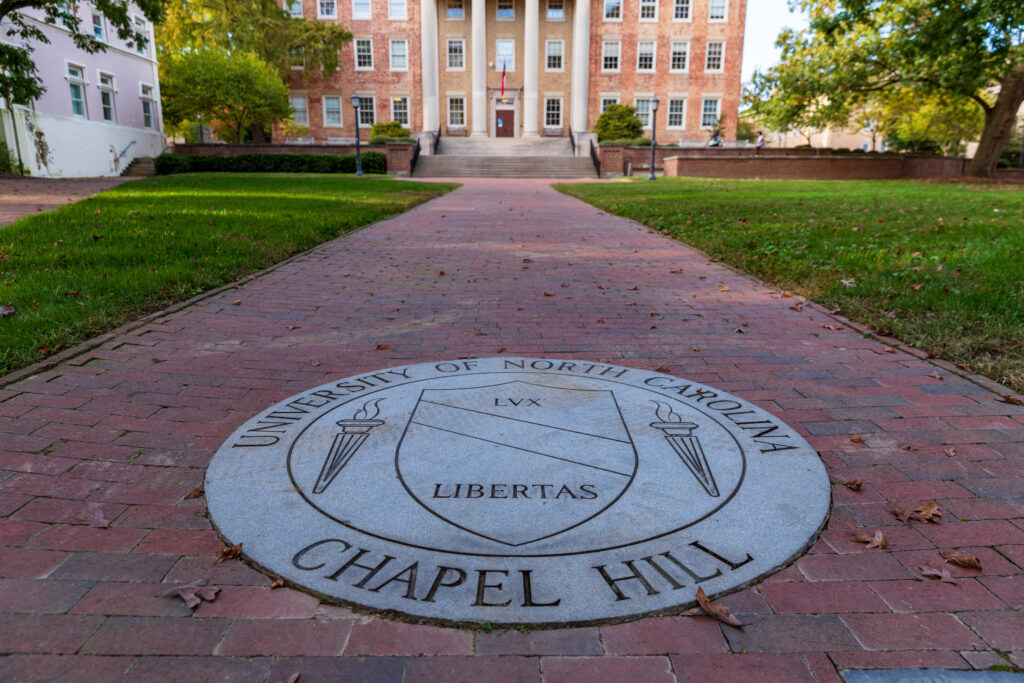When Nikole Hannah-Jones was under review for tenure at UNC, a mega-donor who named the journalism school confidentially—and controversially—expresed his opposition to her tenure.
One of the thorniest problems donors have in giving to colleges and universities is what limits a donor should have on his gift. One bright line is that donors can’t tell a university who to hire or what to teach.
Milton Friedman believed that professorships of free enterprise violated academic freedom, since the donor had an insistence that only free-market advocates could fill these positions. For that reason, Friedman told me in 1990 that “I am opposed to chairs of free enterprise, as I am to chairs of Marxism or socialism.”
But because there are limits to donor power to colleges does not mean that donors have no power. They can always ask for their money back. As I noted in a study for the James G. Martin Center study Games Universities Play, Lee Bass, donated $20 million to Yale to endow eleven professorships in a new program on Western Civilization—but he later had his donation returned to him after Yale did nothing with the money to construct this program. In 1993, David Mugar redirected a $3 million donation—originally for Boston University to renovate the school’s library (named for his grandfather)—to two other charities after Boston University did nothing with the money and claimed it was “lost” due to bad accounting.
But what happens if a donor recommends that the university receiving his donations not give a professor tenure? This describes the recent dispute between Walter Hussman, publisher of the Arkansas Democrat-Gazette, and the University of North Carolina over their offer to give Nikole Hannah-Jones a five-year contract instead of tenure.Hannah-Jones would have taught at the university’s journalism school, renamed the Hussman School after Hussman gave a multi-year $25 million gift to the university in 2019. The evidence suggests that Hussman did not cross a line with his advice that the school offer Hannah-Jones a five-year contract rather than tenure.
Hussman graduated from the University of North Carolina in 1968. He went to work for his family’s newspaper company, being named publisher of the Arkansas Democrat in 1974. His leadership turned the Democrat from a failing afternoon newspaper into the winner of a newspaper war with the Gannett-owned Arkansas Gazette in 1991. Wall Street Journal columnist Tim W. Ferguson noted at the time that the victory of a locally-owned newspaper over a national chain was not celebrated because the Democrat was “the conservative choice” in Little Rock and the newspaper’s editorial page “could help explain why the Democrat’s triumph over the giant outsider has so few in the media-academic world jazzed up.”
Hussman had long been courted by his alma mater. In 2009 the university gave him a distinguished alumnus award, declaring that “Walter Hussman is an endangered species: a newspaperman who knows how to publish a newspaper and make money at it.”
In 2014 Susan King, dean of the University of North Carolina journalism school, visited Hussman in Little Rock and began soliciting a large donation to the school. In 2019, she persuaded him to make a multi-year $25 million donation through the Hussman Family Foundation to the school. She told Editor and Publisher that Hussman “really wants to make a statement about what matters in a democracy and the role of journalism in it. This gift gives him a chance to really make a statement. It’s not money: it’s a value statement.”
In September 2020 the University of North Carolina began negotiations with Nikole Hannah-Jones, an alumna of the school, and a New York Times Magazine staff writer who led the magazine’s “1619 Project.” The Knight Foundation would endow her chair, and Hannah-Jones was in the third year of a five-year MacArthur Fellowship.
After he heard of the university’s offer to Hannah-Jones, Hussman wrote an email to Susan King, chancellor Kevin Guskiewicz, and vice chancellor David Rough, stating that “I worry about the controversy of tying the UNC journalism school to the 1619 Project. I find myself more in agreement with Pulitzer prize winning historians like James McPherson and Gordon Wood than I do Nikole Hannah-Jones. These historians appear to me to be pushing to find the true historical facts. Based on her own words, many will conclude she is trying to push an agenda, and they will assume she is manipulating historical facts to support it. If asked about it, I will have to be honest in saying I agree with the historians.” He added that “this possible and needless controversy” would overshadow the Hussman School being “the champion of objective, impartial reporting and separating news from opinion.”
There’s a good deal of evidence to support Hussman’s position. As this Influence Watch piece about the 1619 Project notes, eminent historians have noted many errors with the 1619 Project’s assumptions, including that slaves were in America in 1619 instead of indentured servants who could be freed after a number of years, that the American Revolution was primarily about slavery, and that President Abraham Lincoln was a racist (instead of one of the most prominent anti-racists of his time).
Moreover, Hannah-Jones does not appear to recognize the first duty of the historian (and the journalist), namely, never to respond to statements questioning opinion, but always to correct factual errors. In addition, she responded to questions from Washington Free Beacon reporter Aaron Sibarium about her use of the “n-word” in tweets by tweeting Sibarium’s cellphone number, keeping it online for 71 hours, and then deleting her entire Twitter account.
In April 2021, the University of North Carolina offered Hannah-Jones a five-year contract to teach at the school. Hannah-Jones said she would turn down the position if she did not receive tenure. The University of North Carolina trustees then voted to give Hannah-Jones tenure. Hannah-Jones then rejected the university’s offer for a position at Howard University endowed by the Knight Foundation. The Washington Post said she and author Ta-Nehisi Coates would be joining the Howard faculty due to $20 million from the Knight, Ford, and MacArthur Foundations and an anonymous donor. No one, as far as I know, objected to the donor’s anonymity.
Walter Hussman denied trying to block Hannah-Jones’s hiring and said his donations to the university would not be affected by the episode. He wrote a letter to Chancellor Guskiewicz after Hannah-Jones accepted Howard’s offer, stating “the concerns I expressed” about Hannah-Jones’s hiring “were rooted entirely in the core values of honesty, accuracy, and impartiality, which are closely associated with me and the school. I felt it appropriate for me, as for any alumnus, to convey them to the dean.” His statement after his earlier emails were released was emphatic that he was writing as an alumnus expressing his thoughts and concerns, not a donor offering a quid pro quo.
Walter Hussman’s story tells us that donors to universities can advise but they cannot rule. Donors can—and should—speak out on issues that concern them. They can, as a last resort, demand their donations be returned if the university violates or ignores their intentions. But they cannot expect simply to “get their way,” particularly on issues of hiring. Donors should keep the limits of their power on campuses in mind as they decide if it’s a good idea to give to a college or university.







In July 2022 the University of North Carolina agreed to pay Nikole Hannah-Jones $75,000 and she agreed not to sue the university. As part of the settlement, the university agreed to hire 20 “diversity, equity, and inclusion” staffers who would have some veto power over future university hiring.
In April 2022, NC Policy Watch published an article describing the University of North Carolina’s investigation into who leaked the contract between the Hussman Family Foundation and the university over the foundation’s donation to the university journalism school. The emails the site obtained with a freedom of information request showed the university conducted an internsive investigation, including accessing the personal emails of two journalism school professors the university thought could be possible leakers. The emails NC Policy Watch obtained showed that the university never found out who leaked the donor agreement contract.